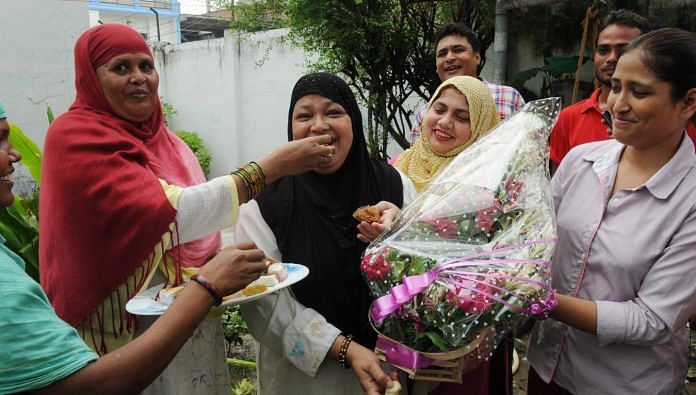ThePrint asks:
Is criminalising triple talaq a legal necessity or a political gambit?
Sir Carleton Allen says a crime consists of wrongdoing which directly and in serious degree threatens the security or wellbeing of society. It is not enough to only compensate the injured party.
The purpose of criminal law is to forbid and prevent conduct that unjustifiably and inexcusably inflicts or threatens substantial harm to individual or public interests. Since the Supreme Court has set aside triple talaq, it no longer dissolves the marriage, and thus, causes no harm at all. It no more threatens the security and well-being of society.
The primary purpose of criminal law is ‘prevention’ of an act; if non-criminal means can succeed in preventing this act, criminal law need not be used.
Here are other sharp perspectives on the question:
Zakia Soman, founding member of Bharatiya Muslim Mahila Andolan
Hilal Ahmed, associate professor at CSDS
Salman Khurshid, politician and advocate
Jonathan Schonsheck asks: “Is there some technique of social control which will be successful in reducing the incidence of that action to an acceptable rate; but which is less intrusive, less coercive than a criminal statute?” If the answer is affirmative, the alternative technique is preferable to the criminal sanction.
Inconsequential triple talaq, thus, should not be criminalised. The fundamental principle of good legislation is the art of conducting men to the maximum of happiness, and to the minimum of misery. A principal source of errors and injustice in legislation are false ideas of its utility. The Lok Sabha debates clearly demonstrated that government has unrealistic hopes from this bill.
Moreover, criminal law should not be used if it may not be effective in controlling the act in question. The triple talaq law is bound to fail, especially in cases of oral triple divorces given by husbands. If no one else was present at the time of the oral divorce, then discharging the heavy burden of proof will be a Himalayan task for the prosecution. Husbands will get easy acquittals on the basis of benefit of doubt. The prosecution’s failure in proving the 2G scam is the latest example.
Faizan Mustafa is the vice-chancellor of NALSAR University of Law, Hyderabad.




So in the instant triple talaque case where the husband can deny that he has pronounced it to avoid punishment, the wife will be considered married till husband does it in a proper and legal way. Also if the wife does not complain as the husband can not reveal it, the husband can not treat the wife as divorced till the proper divorce is performed. Basically, the law must have been framed in such a way as to take care of many such situations or will be revised as we move on to plug all loopholes and provide the required remedies.